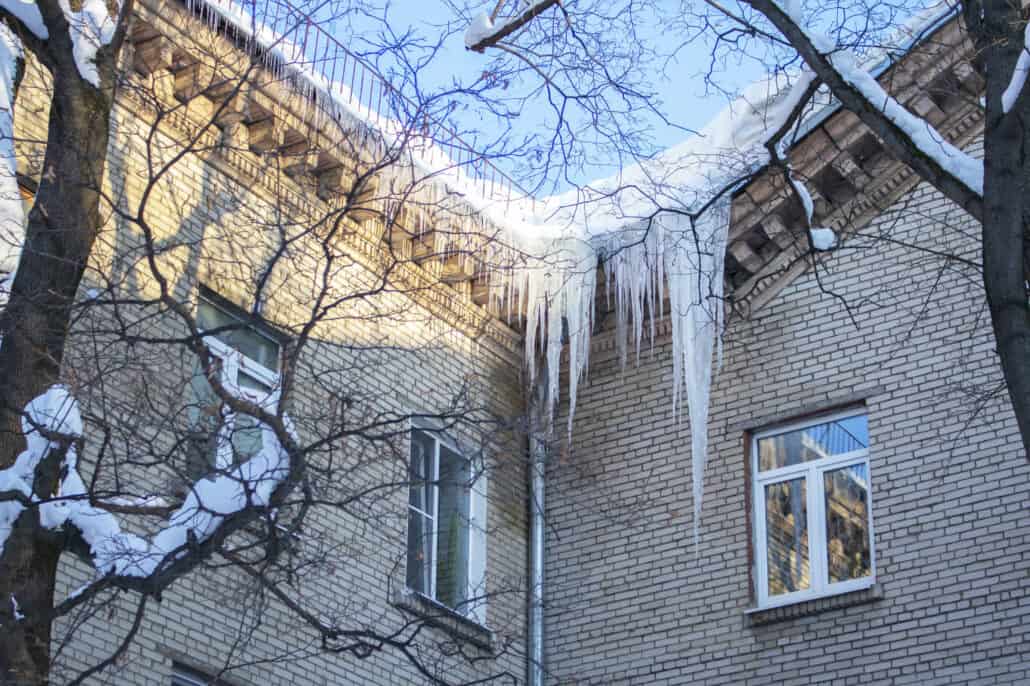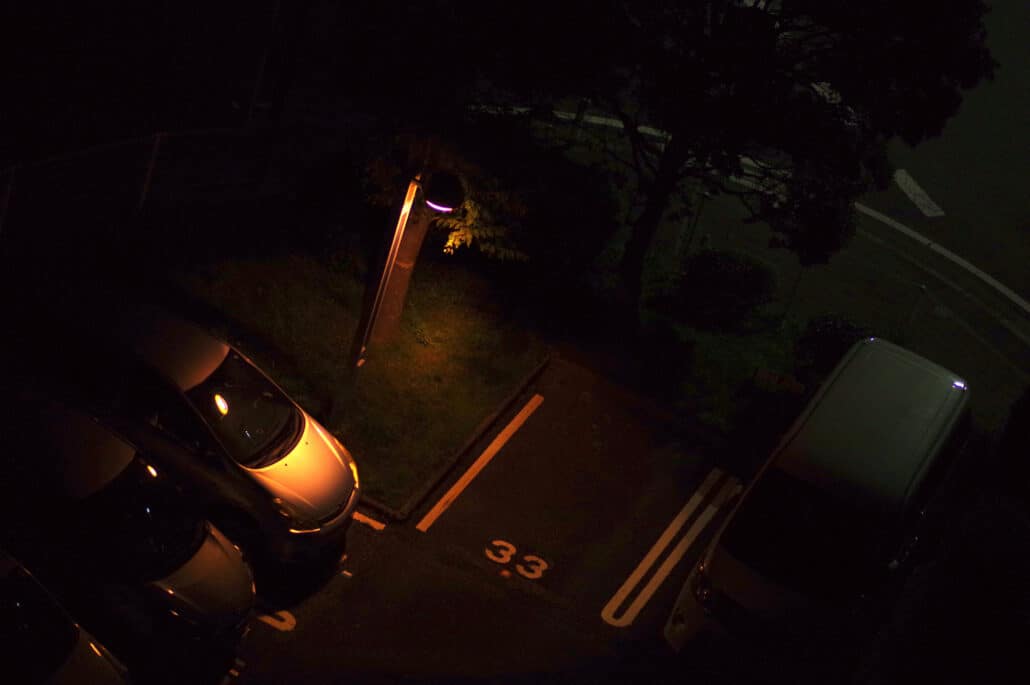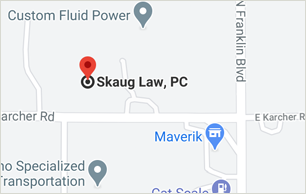Premises Liability Checklist
Last updated Tuesday, March 1st, 2022

If you or a loved one was injured on someone else’s property due to a property owner’s negligence, time is of the essence! Completing the steps below can safeguard personal health and give premises liability lawyers more evidence towards future claims.
- Seek prompt medical attention. This action should be first on a victim’s mind especially if there’s immediate pain, but times can be chaotic in the aftermath of an unexpected accident. Be sure to get documentation of medical treatment.
- Get the accident on record. An account of what happens when you are injured in a store is needed. File a report with the store or restaurant manager if appropriate; this is especially important when pursuing store injury settlements. Remember to ask for a copy.
- Gather contact information from witnesses. Casually interview anyone who saw what happened; take down names and numbers. If nobody was around during the accident, request surveillance video footage.
- Take photos. Use a cell phone camera to capture the accident scene from several angles. Take close-ups and landscape pictures to give a better idea of the environment. Shooting a short video could be useful as well.
- Jot down the sequence of events. Avoid the urge to put this step off; do it while everything is still fresh. Include date, time, physical address, location within the premises, overall description of the accident scene, signage (or lack of), lighting, maintenance or shape the property was in and purpose of the visit.
- Contact a premises liability attorney near me. A well-respected personal injury lawyer can simplify what can be a complex process. Our understanding team members at Skaug Law can file a premises liability claim in Idaho on behalf of accident victims.
Premises Liability: Why it Matters When You’re Injured On Someone Else’s Property
Store injury settlements can make a big difference when a property owner’s negligence may be the reason behind a debilitating injury. Seeking a premises liability attorney near me? Premises liability lawyers at Skaug Law understand this type of personal injury law in Idaho and work diligently to seek damages for accident victims.
What happens when you are injured in a store? Premises liability is not always clearly defined. Accident victims need an experienced litigator to fight on their behalf if a personal injury occurred on another’s property. Plaintiffs have a limited amount of time to file a premises liability claim in Idaho, so time can be an obstacle.
What is Premises Liability?
When one person suffers an injury on another’s property due to the negligence of another person or company, a premises liability claim may be filed in Idaho.
Skaug Law Tip: Regardless of the extent of your injuries, if you were injured in a place that someone else owns such as a restaurant, apartment, store, hotel or a friend’s home, contacting a personal injury lawyer can be a smart idea.
Who can Claim Liability in Idaho?
Getting the scoop on who can claim liability after being injured on someone else’s property can be helpful when learning more about this subset of personal injury law in Idaho.
- Invitees: These persons enter a property to conduct business so both the business owner and visitor may receive tangible benefits. Examples include: a client visiting a hair salon to receive a haircut, and a shopper entering a supermarket to purchase groceries. Property owners have the highest amount of duty to protect people in this category.
- Licensees: Someone who comes onto the premises for their own benefit is a licensee. Examples may include party guests and a door-to-door salesperson. Property owners have the next highest amount of duty to protect licensees.
- Trespassers: These folks have no right or permission to be on the property for any reason. Vandals and vagrants are examples of these visitors.
Skaug Law Tip: Idaho property owners are generally not responsible for injuries trespassers sustain while on-site. However, if it can be proved that permission was indeed granted, and the plaintiff’s injury was a direct result of the property owner’s negligence, the property owner could be held liable.
Serious Cases Call for Serious Premises Liability Lawyers
While some cases don’t involve life-altering injuries, many do. Our empathetic and skilled attorneys know how to file a premises liability claim in Idaho that results in compensatory damage awards and store injury settlements.
- Cases such as these happen when a lack of on-site security is to blame for a physical offense or crime. Inadequate or inoperable security cameras, guards, lighting and locks indoors as well as the parking lot and grounds can account for such acts.
- Dog Attacks. More than just a single dog bite, these events typically involve a vicious attack from one or more dogs out of their owner’s control. Reconstructive surgery or rehabilitation may be necessary in some of the worst-case scenarios.
- Slip and Fall Accidents. These personal injury cases are extremely common, especially during the long Idaho winters. Incidents can cause such suffering that the body can no longer operate as it did. Working may be off the table indefinitely, and long-term care may even be needed. Catastrophic spinal cord injuries may result from a bad slip and fall.
- Traumatic Brain Injuries. These debilitating injuries can happen to someone who falls – off a ladder, on an icy walkway, down a stairwell and even in a shower. Victims may hit their heads with such severity that irreparable damage occurs.
- Wrongful Deaths. Accidental drownings, fires, faulty machinery, explosions and theme park accidents are just a handful of examples of cases where people are fatally injured on someone else’s property.
Should I Retain a Premises Liability Attorney Near Me for a Minor Injury?
While there is no firm answer to this question, our qualified premises liability lawyers carefully evaluate each case to see if victims could potentially qualify for compensatory damages. Some minor accidents that fall under the umbrella of this type of personal injury law in Idaho include:
- Broken Bones. Accidents that cause broken bones because of negligence on the part of property owner can be considered minor if injuries can heal properly with proper medical care.
- Bruises, Fractures and Sprains. Store injury settlements can come from what happens when you are injured in a store. Examples may include a single stair giving way or package falling from a shelf onto someone’s foot.
- Dog Bites. Physical injuries are typically mild from a dog’s quick nip or abrupt bite but could leave victims traumatized or scarred.
- Trips, Slips and Falls. These incidents may not all result in paralyzing injuries. Examples are a restaurant patron tripping over a loose piece of carpeting, and a shopper slipping on spilled liquid.
Store Injury Settlements: Recovering Damages
When it comes time to file a premises liability claim in Idaho, potential plaintiffs may wonder if all of the effort will pay off and if so, how exactly? Anyone injured on someone else’s propertymay be dealing with so many issues that filing this type of personal injury claim may seem like just another chore.
Hire a premises liability attorney near me! Don’t worry about the process; put our personal injury attorneys to work for you! Things may never be the same after a life-changing accident, but we do everything in our power to make the road to recovery easier. Compensatory damage awards aim to aid victims by covering:
- Future lost wages and long-term earning potential
- Past, present and future medical bills caused by accident in question
- Pain and suffering for permanent disability or disfigurement
How Long do I Have to File a Premises Liability Claim in Idaho?
The statute of limitations in Idaho is two years for personal injuries. Victims have exactly two years from the day of the accident to go through legal channels and file a premises liability claim.
Skaug Law Tip: It doesn’t cost a nickel to learn about your rights, but it could cost victims plenty if they wait to file a premises liability claim in Idaho. We offer free consultations to anyone who has suffered due to a property owner’s negligence.
Determining Fault in Idaho Premises Liability Cases
The Gem State utilizes the comparative fault system. If Party A is found to be partially responsible for injuries he sustained on Party B’s property, Party A is still allowed to recoup up to 50 percent of his claim.
Wondering what happens when you are injured in a store? This system attributes faults in percentages; if the injured party is held 30 percent accountable for his accident, he can only seek up to 70 percent of the damages.
Property owners must make licensees and invitees aware of potential hazards or have made reasonable accommodations to protect them. If someone walked in a hazardous area clearly marked as dangerous, the owner would probably argue that the plaintiff was at least partially responsible.
How our Personal Injury Attorneys can Help
What happens when you are injured in a store? Fallen victim to an accident on someone else’s property? Need a professional premises liability attorney near me? Accident victims may be entitled to compensatory damages if the incident is a direct result of the property owner’s negligence.
We understand premises liability laws can be confusing and are here to guide injured parties through the entire process. Considering filing a premises liability claim in Idaho? We can review your case and develop a winning strategy. Contact our helpful team at Skaug Law today for a free consultation.
What responsibilities does a property owner have towards people’s safety in Idaho?
How is fault determined for a premises liability injury in Idaho?
What are the most common types of Premises Liability accidents in Idaho?
What types of damages can be recovered from a Premises Liability accident in Idaho?
How long do you have to file a claim for a Premises Liability accident in Idaho?
What should I do after an accident on someone else’s property?
What is an ‘Attractive Nuisance’?
When is a dog owner liable for a dog biting someone?
When is a dog considered ‘justifiably provoked’ for biting someone?
What responsibilities does a property owner have towards people’s safety in Idaho?
A property owner owes a certain duty of care to those who enter their property, depending on the legal relationship that the property owner has with the other party. There are three main categories that individuals fall under.
Invitees are individuals who have been invited onto a property for a legitimate business purpose. For example, a plumber called to fix a broken dishwasher would be an invitee. Licensees are individuals with permission to be on the property. This usually applies to guests, like friends or family. Trespassers are individuals who either do not have the right to be on the property, or only possess the right to be on the property for recreational purposes according to Idaho law.
The property owner owes each of these types of individuals different levels of care.
- The property owner is responsible for making sure that their property is safe for invitees, and that they are warned of any potential hidden dangers.
- The property owner is responsible for making sure that licensees are aware of any potential hidden dangers
- The property owner is responsible for not intentionally behaving in a way that would endanger trespassers
If the owner failed to meet their legal obligation of care, they may be responsible for injuries caused by that negligence. This is not a guarantee of absolute obligation, however, as the guest may also be liable for any dangers that they may have reasonably known about.
How is fault determined for a premises liability injury in Idaho?Like with other types of accidents leading to injury, Idaho determines liability through a system of Comparative Fault. Through Comparative Fault, even if one party is found to be partially at fault for an accident they will not be barred from recovery, up to a limit of 50%. However, the amount of fault you are determined to have for an accident reduces your compensation accordingly. For example, if you are found to be 20% responsible for an accident, at most you will be able to recover 80% of your damages.
Fault is further complicated with premises liability accidents. While the other party may have a responsibility to ensure that you are aware of dangers based on your status as an invitee or licensee (if applicable), this may not apply if you were trespassing on their property, or if you were aware or, with reasonable diligence, could have been aware of the danger.
If, for example, you were walking somewhere you were not supposed to be, or were distracted by your phone, the property owner could argue that you were at least partially responsible for your injuries as a result.
What are the most common types of Premises Liability accidents in Idaho?In both personal residences and commercial properties, Slip and Fall accidents are the most common source of Premises Liability injuries in Idaho. These injuries usually stem from a slippery surface that leads the victim to fall and injure themselves while attempting to prevent the fall, or from the impact of the fall itself. The elderly are especially vulnerable to these kinds of accidents. Other common types of accidents include
- Falling merchandise
- Dog bites
- Fires
- Unstable stairs or walkways collapsing
- Swimming pool accidents, such as drowning.
There are many hazards that may not be immediately obvious, and sometimes a situation that should have been safe is not because the property owner did not take sufficient care to maintain the safety of their property. If you believe this to be the case, contact a Personal Injury Attorney to discuss your case.
What types of damages can be recovered from a Premises Liability accident in Idaho?Generally speaking, the purposes of the damages in a Premises Liability case is to get the injured person back as close as possible to the condition that they were in before the accident. In most cases, this is done through awarding compensatory damages, which can include:
- Medical bills
- Future medical expenses
- Lost wages
- Lost long term earning potential
- Permanent disability or disfigurement
The specifics of any given case can vary, and sometimes damages are also awarded for various losses to quality of life stemming from injuries. In order to best determine which may be applicable for you, consulting a Personal Injury Attorney can help you so that your claim accounts for all of your losses and that you receive the compensation you deserve.
How long do you have to file a claim for a Premises Liability accident in Idaho?The time for filing a claim, called the Statute of Limitations, is two years in Idaho for personal injuries and three years for the damage of personal property. This means that you have two years from the time of the accident to file a lawsuit in court, though claims going through insurance will usually need to be made much faster, usually within a few days of the accident.
Missing the deadline for the Statute of Limitations on your case will usually result in your case being dismissed, and the clock does not stop ticking just because you might be stuck negotiating with insurance. The sooner you take action on getting your case started, the better your chances of success.
What should I do after an accident on someone else’s property?Your initial response after an accident will depend on how severely you’ve been hurt. If you are still in a condition to do so, you will want to document the location of the accident. This usually means taking a photograph of the scene with your phone or camera, preferably with a timestamp. Many smartphones can add timestamps to photographs through an option in the camera settings. This serves as evidence that the accident occurred, as well as providing a snapshot of the conditions in which it happened, which can help to support your case.
Outside of documenting the scene, you will want to arrange for medical attention as soon as possible after the accident. This will help for both making sure that you receive the treatment you might need for any injuries, including less obvious ones, and also provides a link between the accident and your injuries should you need to prove that they were caused by the accident when dealing with insurance or the property owner.
What is an ‘Attractive Nuisance’?Attractive Nuisance is a legal term that explains that there are certain items that can attract children while also being dangerous to them, and that you are responsible for preventing harm caused by these items, even to trespassers and those who do not have the legal right to be on the property. This includes things like swimming pools or other recreational items, like swing sets or other features that may attract children. Some examples of precautions that can be taken include:
- Non-climbable fences
- Lockable gates
- Safety covers for pools
- Other safety-oriented objects as relevant
- A telephone nearby in case of emergencies
It is important to remember that liability for these ‘Attractive Nuisances’ lies with the property owner, even if they have not made their property open to the public. If you have features such as a pool on your property, you are responsible for making sure that they are safe and secured.
When is a dog owner liable for a dog biting someone?A dog owner is liable for injuries caused by their dog if they knowingly own or harbor a dangerous or at-risk dog and have not taken appropriate steps to ensure that their dog will not harm anyone. These steps can include:
- Keeping the dog confined in a secure, locked enclosure that it cannot escape and that others cannot accidentally enter, where exit and entrance are controlled by the owner of the premises or dog.
- When off the premises, the dog must be kept on a secure leash held by someone capable of controlling the dog, and, if necessary, muzzled when they might come in contact with the public
- The dog must be permanently identified with a color photograph in a file maintained by the court and local law enforcement, as well as by a tattoo or microchip used for identification at the expense of the owner.
- The premises on which the dog is kept must have clear signs indicating the dangerous dog’s presence, such as signs saying Beware of Dog. They may also require signs with a clear warning symbol so that children can be aware of the danger of the dog, and these signs must be visible from the closest roadway.
And possibly others as determined by the court. Failure to meet the requirements ordered by the court can find themselves liable for the injuries of the victim of the attack, and can possibly even require the dog to be put down.
When is a dog considered ‘justifiably provoked’ for biting someone?A lot of the discussion about dog bites revolves around whether the dog is dangerous, or if it has been justifiably provoked. While it can be quite easy to tell if a dog behaves aggressively, what does it mean for a dog to be justifiably provoked? Some of the examples of justifiable provocation for a dog include, but are not strictly limited to:
- The dog is protecting a person within the immediate vicinity of the dog from an attack or assault.
- The person bitten was performing a crime on the property of the dog’s owner or custodian.
- The person had at the time, or previously, willfully tormented, abused, or assaulted the dog.
- The dog was responding to pain or injury.
- The dog was protecting its offspring.
- The dog was working as a hunting, herding, or predator control dog on the property of its owner and the damage or injury was sustained by someone interfering with the dog while it was lawfully engaged in those activities.
- The dog is a service animal that has been trained to do work or tasks for an individual with a disability.
- The person was intervening between two or more animals that were behaving aggressively or fighting.
While a dog’s owner is responsible for taking reasonable precautions to protect others if their dog is aggressive, there are still circumstances in which a dog can be reasonably expected to defend itself.



